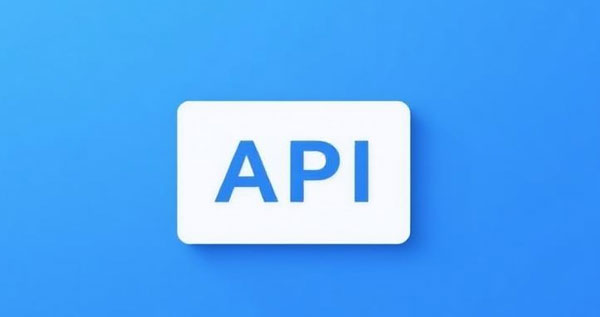How to Improve Data Scraping Efficiency and Accuracy Through APIs
Introduction: Why Structured Data Matters
Structured data is at the core of business decision-making and analysis, helping companies extract valuable insights from vast amounts of unorganized information. Whether it's market research, competitive analysis, or product optimization, the efficient collection and processing of structured data is crucial for business operations. However, in the modern business workflow, data scraping often faces numerous challenges, such as diverse data sources, low scraping efficiency, and poor data quality. Improving scraping efficiency and accuracy has become a focus for many companies.
1. Basic Process and Challenges of Data Scraping
The Process of Data Scraping: Generally, data scraping involves the following steps:
Identifying data sources
Choosing appropriate scraping techniques (web crawlers, APIs, etc.)
Processing data into a structured format
Storing and analyzing the data
Common Scraping Challenges:
Diversity of data sources and structural differences
Obstacles caused by anti-scraping technologies
Timeliness and stability of data scraping
Data quality issues (missing values, noisy data, etc.)
2. Using APIs to Improve Scraping Efficiency and Accuracy
The Role of APIs in Data Scraping: Compared to traditional web crawlers, APIs provide a more stable and structured way to collect data. By using APIs, developers can directly access the interfaces provided by target platforms, retrieving standardized JSON or XML data formats without worrying about page structure changes or anti-scraping measures.
Advantages of APIs:
Efficiency: APIs typically provide a more efficient data extraction method, eliminating the complexity associated with page parsing done by web crawlers.
Structured Data: Data returned via APIs is generally structured, allowing developers to use it directly without additional processing.
Stability: APIs are more stable than crawlers, offering solutions to overcome anti-scraping measures such as IP blocking and CAPTCHA systems.
Example: LuckData offers multiple API interfaces for platforms like Walmart, Amazon, and more, enabling businesses to retrieve product details, reviews, and other data. These APIs provide structured data, which can be directly imported into data warehouses for further analysis.
3. LuckData API: How to Optimize Scraping Efficiency with Professional Services
About LuckData: LuckData offers a range of efficient and stable data collection tools that support data scraping from various global platforms. Its API interfaces are designed with developers in mind, providing code examples in multiple programming languages (Python, Java, Shell, etc.) to make data scraping simple and accessible.
Advantages of the API:
Comprehensive API Services: LuckData supports APIs for multiple platforms like Walmart, Amazon, Google, and TikTok, meeting a variety of business needs.
Flexible Pricing Plans: Depending on the company's needs, LuckData offers different pricing plans to accommodate varying scraping frequencies and data volumes.
Efficient Integration and Technical Support: LuckData not only provides API interfaces but also includes comprehensive code examples and professional technical support to help businesses integrate APIs quickly and resolve technical issues.
Accurate and High-Quality Data: Through LuckData's API, businesses can obtain high-quality structured data, avoiding issues of data inconsistency or loss that often occur with manual scraping.
For example: By using LuckData’s Walmart API, businesses can easily retrieve product information such as prices, inventory, and customer reviews. This structured data is ready to be used for market analysis, pricing strategies, and more.
4. Key Factors to Improve Scraping Accuracy
API Documentation and Code Examples: API providers typically offer detailed documentation and code examples. LuckData provides numerous code samples in different programming languages, allowing developers to get started quickly and avoid manual adjustments to API request parameters.
For instance, using Python, you can easily retrieve product information from Walmart using the following code:
import requestsheaders = {
'X-Luckdata-Api-Key': 'your luckdata key'
}
response = requests.get(
'https://luckdata.io/api/walmart-API/get_vwzq?url=https://www.walmart.com/ip/NELEUS-Mens-Dry-Fit-Mesh-Athletic-Shirts-3-Pack-Black-Gray-Olive-Green-US-Size-M/439625664?classType=VARIANT',
headers=headers,
)
print(response.json())
With this code, developers just need to input the correct API key and the target product URL, and they will directly obtain the structured data for the desired product.
Data Cleaning and Validation: While the data returned by APIs is already structured, businesses still need to perform data cleaning and validation. By checking data completeness, removing redundant information, and filling in missing values, businesses can ensure the quality of the retrieved data.
5. Practical Applications and Useful Tips
Market Analysis and Competitive Intelligence: Through APIs, businesses can regularly retrieve product information and pricing data from competitors, providing accurate market analysis reports for decision-makers.
Ad Verification and SEO Optimization: Businesses can retrieve data such as ad impressions and click-through rates via APIs to analyze ad performance. At the same time, scraping website data and performing SEO monitoring can improve website rankings.
Global Data Scraping: With LuckData's global proxy network, businesses can bypass geographical restrictions and access data from various regions, helping with global market research.
6. Conclusion: APIs Help Businesses Efficiently Scrape Structured Data
As the importance of data continues to grow, businesses need more efficient and accurate ways to collect data. APIs, as a flexible and efficient tool, can help companies quickly and accurately gather the structured data they need. Professional data collection services like LuckData offer convenient API interfaces, stable data scraping services, and comprehensive technical support to help businesses solve data scraping problems and improve scraping efficiency and accuracy.




